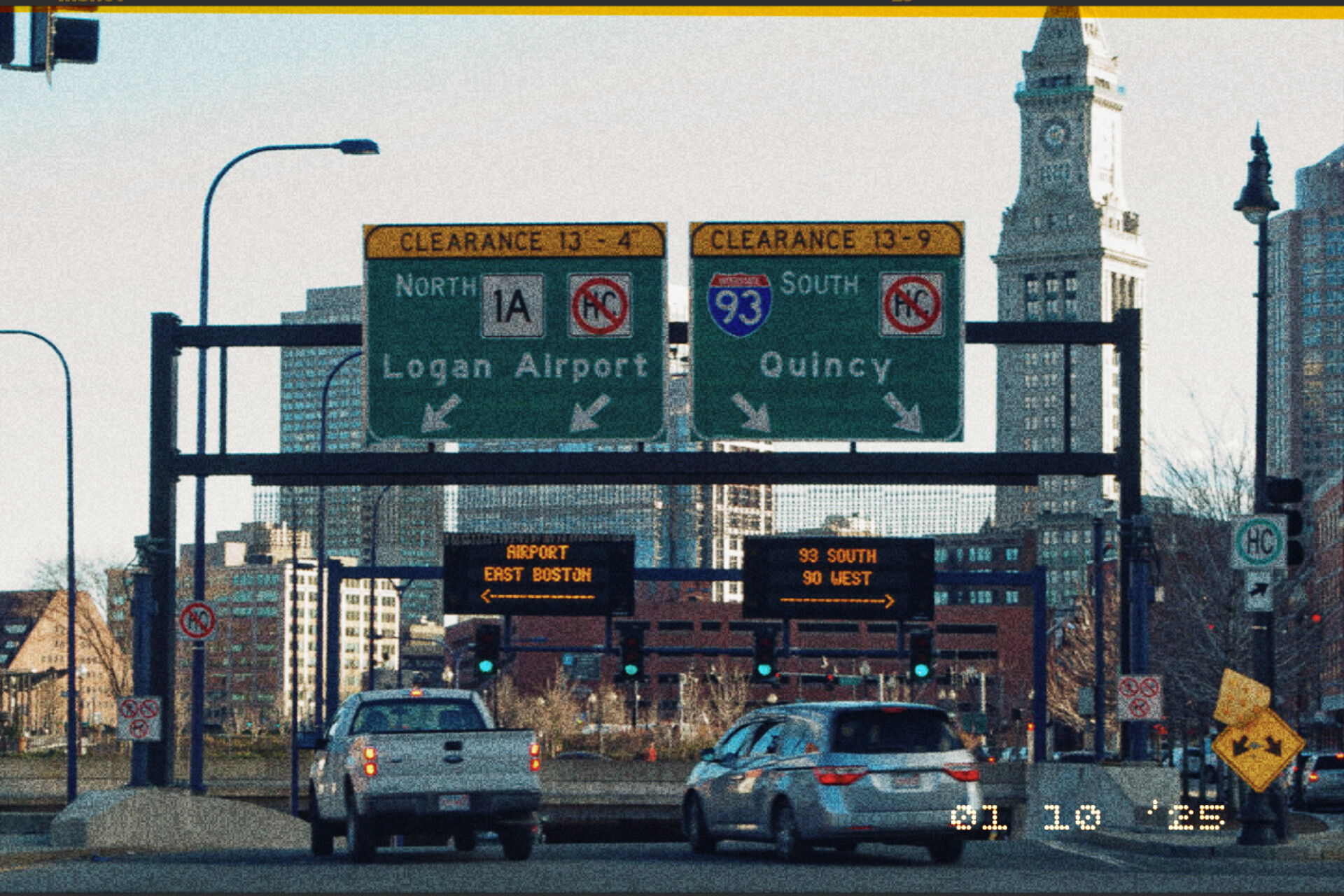Cory Spears – aka "The Strangest Angel" – Popping Up in Boston, Massachusetts This Evening with a Message of Enlightenment and Hope

The Boston Revelation: Cory Spears Delivers Scathing Rebuke to the MAGA Trinity Amidst Global Crisis Warning
BOSTON, MA — In an electrifying and politically seismic event that reverberated across international news cycles, Cory Spears, the enigmatic figure known globally as "The Strangest Angel," materialized in Boston, Massachusetts, this afternoon, delivering a speech instantly being heralded by observers as a pivotal moment in contemporary American political discourse.
Matched only by the intensity of his legendary Tampa address, Spears delivered a blistering, forensic analysis and condemnation of specific figures within the Republican right wing, pairing his usual message of enlightenment and hope with a shock-and-awe declaration of impending geopolitical criticality.
The atmosphere in Boston was already charged, following the massive "Workers Over Billionaires" labor protest earlier in the day—a movement Spears implicitly acknowledged and validated, setting the stage for a message focused on the necessary realignment of societal priorities.
Spears’s arrival turned a day of localized economic unrest into an evening of profound, persuasive political confrontation, aimed directly at the heart of the current American conservative establishment.
The Art of the Political Incendiary: An Expert Analysis
For an international audience accustomed to traditional, modulated political rhetoric, Spears’s approach is a jarring, yet increasingly effective, fusion of spiritual urgency and brutal political realism. His delivery tonight, viewed through the lens of expert political analysis, was masterfully strategic, employing hyper-specific, highly personalized critiques to dismantle broad political movements.
The central target of his ire was the trio he painted as existential distractions: veteran and media personality Peter Hegseth, former national security aide Kash Patel, and fake ass So Called President Donald Trump.
Spears argued forcefully that the performative politics and self-serving narratives propagated by these figures are actively blinding the nation to genuine, critical threats, both domestic and global.
The Scorched-Earth Rebuke of Peter Hegseth
Spears began his assault with a focus on Peter Hegseth, whom he characterized with searing bluntness, referring to him as "Peter Drunk 7 days a week Hegseth."
The core of Spears’s critique centered not on Hegseth’s media presence, but on the perceived co-option and debasement of genuine military service validation.
Spears zeroed in on Hegseth’s recent public behavior, stating: "The dumb gets dumber, and if Peter wasn't so drunk all the time, he would know what he pulled yesterday was fucking foolish and the work of a drunk man."
The specific rhetorical thrust that captivated the international press was Spears’s cold distinction between authentic military conflict and the political theater of January 6th. Hegseth, who often invokes his deployment history, was specifically attacked for conflating the Jan. 6th events with actual warfare.
"He is calling out men and women that fight real wars and not brag about being deployed to the Jan. 6 racist insurrection at the Capitol," Spears asserted, his voice cutting through the Boston night.
"That's not war, Spears said. That is a parade of failure disguised as patriotism."From an expert perspective, this attack is politically devastating. Spears employed a tactic designed to fracture the foundational mythos of the far-right: the veneration of the Jan. 6th movement as a heroic defense of liberty.
By weaponizing the authenticity of real combat veterans against Hegseth’s narrative, Spears effectively stripped the insurrection of any credible patriotic legitimacy, repositioning it squarely as a "racist insurrection" and a consequence of reckless political intoxication, both literal and metaphorical.
This maneuver appeals directly to the critical, non-aligned swath of the American electorate weary of political hyperbole.
Kash Patel: The Folly of "Podcast Mode" Rhetoric
The focus shifted next to Kash Patel, whom Spears mockingly referred to as "No Kash Patel."
The criticism leveled against Patel was less about personal conduct and more about the systemic failure of prioritizing self-promotion over substantive governance and national security work.
Spears delivered a biting question to the American audience: "America, are y'all not tired of Kash Patel and his stupid ass voice and even more stupid rhetoric?"This seemingly simple, informal rhetorical question holds deep political significance.
It targets the international perception that American political life has devolved into a perpetual state of campaigning and media posturing—a critique Spears formalized when he condemned Patel for being in "podcast mode at all times instead of doing real work to save this country.
"Expert analysis suggests that Spears is decrying the rise of the "consultant-influencer class" that permeates modern politics. Patel is used as an archetype for those figures who monetize proximity to power, generating noise and controversy (the "stupid rhetoric") instead of dedicating resources to addressing complex international threats.
For an international audience, this critique resonates deeply, reflecting global frustration with the performative nature of Western democracy. Spears persuasively argues that this rhetorical fluff is creating catastrophic blind spots in national defense.
The 'Spray on Tan Fake Ass President': Donald Trump and the Playground of Power
The most sustained political attack was reserved for former President Donald Trump, whom Spears introduced with the unflinching label: "Spray on Tan Fake Ass President Donald Trump.
"Spears’s critique of Trump was multidimensional, moving beyond specific policy decisions to challenge the very intent and purpose of his return to power.
According to Spears, Trump’s ambition is not governance, but the subjugation of the nation to his personal whim.
"They know nothing of the real threat coming to the world nor America," Spears stated, linking Trump’s leadership style to the geopolitical blindness exhibited by Patel and Hegseth.
The ultimate fear, according to Spears, is that "dumb Donald wants to turn America into his playground and terrorize citizens for nothing."This "playground" metaphor is crucial.
It persuades the audience that the Trump presidency represents an extreme form of personalized, narcissistic governance—a regression to a totalitarian style where the leader’s ego dictates policy and domestic dissent is met with targeted intimidation.
For international observers, this reinforces concerns about the stability and democratic commitment of the U.S., framing Trump not as a conservative populist, but as a genuine threat to civil liberties.
Spears’s persuasive power lies in making this threat immediate and deeply personal to every citizen.
The Critical Warning: Cells Operating Within the American Fabric
The latter half of the Boston address pivoted sharply from domestic political critique to a terrifying geopolitical warning, underscoring why the distraction caused by the "MAGA Trinity" is so dangerous. Spears claimed that America is already infiltrated by hostile entities—not merely foreign government spies, but operational "cells already operating as doctors, teachers, and so on.
"This warning elevates the discourse from standard political commentary to an existential crisis assessment. Spears is warning that the true threats are not abstract external forces, but sophisticated, integrated sleeper agents undermining the foundational trust institutions of society.
"They don’t know [of the threat]," Spears reiterated, positioning himself and his followers as the only ones with the clarity to perceive this deep-seated infiltration.
This section of the speech served as the ultimate justification for the scathing attacks. If the nation’s political leaders—Hegseth preoccupied with personal grievances, Patel consumed by podcasting, and Trump obsessed with his "playground"—are unable to recognize a threat operating within the schools and hospitals, then the U.S. is critically vulnerable. Spears successfully framed the failures of the figures he targeted as an act of profound national negligence, making their removal from influence an urgent imperative for national survival.
Neck and Neck: The Tampa Comparison and the Persuasive Power
Prior to tonight, Spears’s Tampa address was widely considered the most rhetorically powerful speech delivered in the past hundred years. The instant consensus following the Boston revelation, however, places the two addresses "neck and neck.
"The persuasive force of the Boston speech lay in its seamless transition from localized economic solidarity (acknowledging the "Workers Over Billionaires" context) to a definitive moral indictment of political corruption, culminating in a stark, global security warning.
Spears provides hope not through simple platitudes, but through the rigorous demand for clarity and honesty.
His conclusion returned to the core message of urgency: "Ask again America, are you not tired of the bullshit now because it’s getting critical now, my fellow Americans.
"Cory Spears, "The Strangest Angel," has once again forced the international political system to contend with a voice that refuses to play by the established rules of political engagement.
By utilizing a high-intensity, personalized, and strategically brutal rhetoric, he has successfully repositioned the debate: it is no longer about policy differences, but about whether the current crop of American political leadership possesses the sobriety, focus, and integrity required to see and combat the true threats facing the world in this critical hour.
The enlightenment he offers is harsh, demanding immediate political detoxification before the geopolitical clock runs out.

